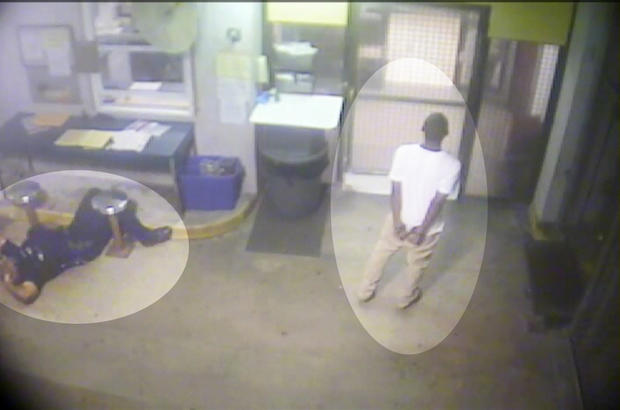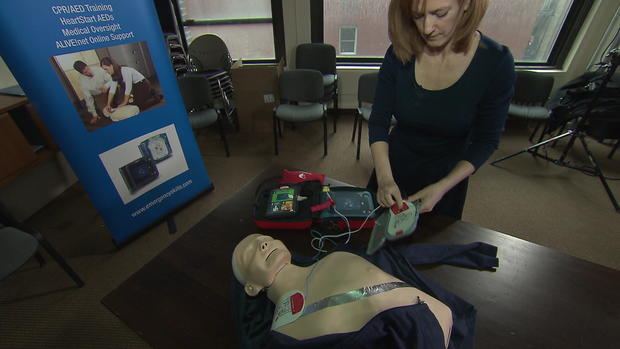Arrested teen's actions seen as key in saving officer's life
Last September, Fort Lauderdale police officer Franklin Foulks was processing Jamal Rutledge after he violated his probation. All seemed routine until Foulks suddenly grabbed his chest and collapsed. His heart was about to stop.
17-year-old Rutledge, who was handcuffed, kicked the secured gate and shouted for officers. One performed CPR and another used an automated external defibrillator, or AED, to shock Foulks' heart. Doctors say those actions were lifesaving. That's because every minute of delay applying a shock to restart the heart lowers the odds of survival by seven to ten percent.
"If we can get an electrical shock to that person in the first few seconds, or first few minutes, it has a very high chance of working," said Dr. Clifton Callaway, the Vice Chair of Emergency Medicine at University of Pittsburgh Medical Center.
AEDs are present in airports and many other public places, and CPR classes now show people how to use them. Instructor Sherry Fusco of the training company "Emergency Skills" demonstrated how easy they are to operate.
"The first thing you do is open the defibrillator and turn it on," said Fusco. "When you turn it on, the defibrillator begins speaking and you just follow it step-by-step."
The biggest fear people have is that they're going to hurt someone more than they're already hurt, according to Fusco, who tells people that using the AED is giving that someone "their best opportunity to survive."
More than 325,000 cardiac arrests happen outside the hospital every year. The American Red Cross estimates more widespread use of these easy-to-use AEDs could save some 50,000 lives a year.
Next week, Rutledge will be honored for helping to save the life of the officer who had just handcuffed him.



